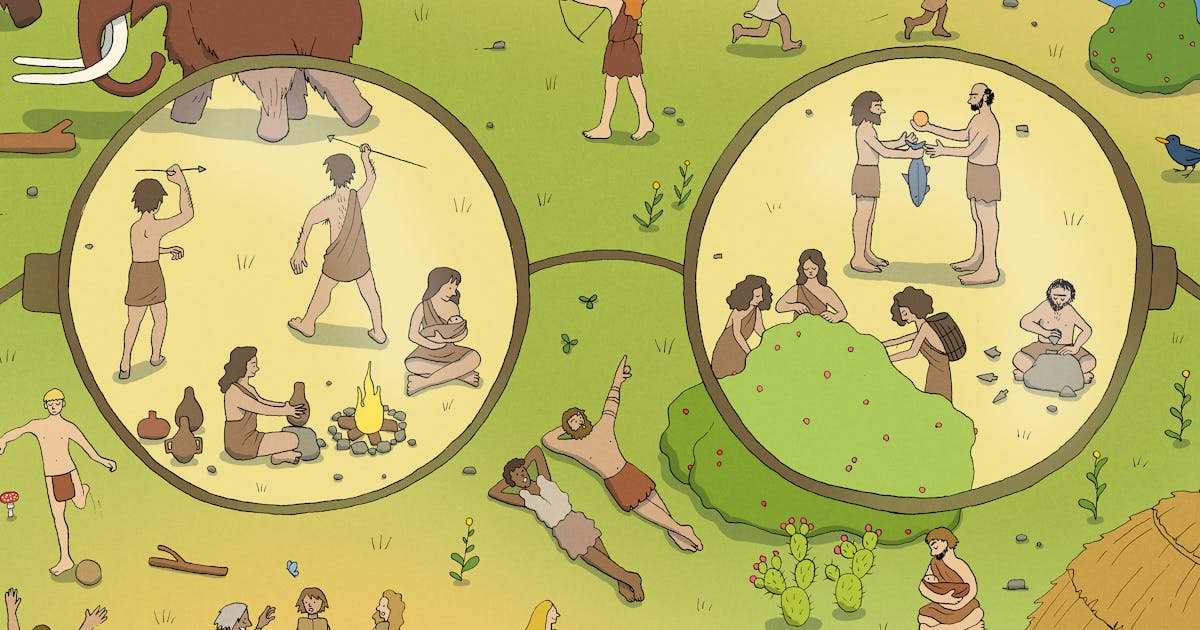
The Abuses of Prehistory
Our prehistoric ancestors never went away. This is what Israeli historian Yuval Noah Harari argued in his international blockbuster Sapiens: A Brief History of Humankind (2015), which claimed to uncover our species’ most important characteristics. In Harari’s telling, our brains were shaped in the era of hunter-gatherers and showed little change thereafter. The emergence of language, social hierarchies, and new technologies did little to update who we are: assemblies of raw impulses that always seek food and comfort. As he put it, “we may be living in high-rise apartments with over-stuffed refrigerators, but our DNA still thinks we are in the savannah.”
Harari, however, also claimed that liberal capitalism was an important breakthrough in this history, since it dramatically eased the tension between our innate desires and social limitations. Unlike previous creeds, which expected people to overcome their urges, consumer culture made gratification into a virtue. Harari went so far as to claim that Silicon Valley and its army of venture capitalists were in the process of replacing all national hatreds with consumer-driven virtual communities. As he proclaimed in a passage that reads like Mark Zuckerberg’s fever dream, a “new global empire” of corporations “effectively enforces world peace.”
Others have argued that prehistoric times point to very different lessons. Rather than explaining our base desires, our predecessors were models for anti-capitalist emancipation. This was the claim of the anarchist anthropologist David Graeber (a celebrity since his participation in the Occupy Wall Street movement) and archaeologist David Wengrow, who co-wrote the bestselling The Dawn of Everything: A New History of Humanity (2021). Drawing on a wide range of archaeological findings, the two declared that ancient humans often lived without social hierarchies and without the inequalities of private property. Even as they cultivated complex agriculture and engaged in commerce, they maintained proto-anarchist sensitivities by distributing power and wealth among themselves. For Graeber and Wengrow, this evidence showed that our capitalist present was not in line with human nature, as Harari believed. It in fact represented a betrayal of early liberties, and had to be corrected by returning to anarchism.



















